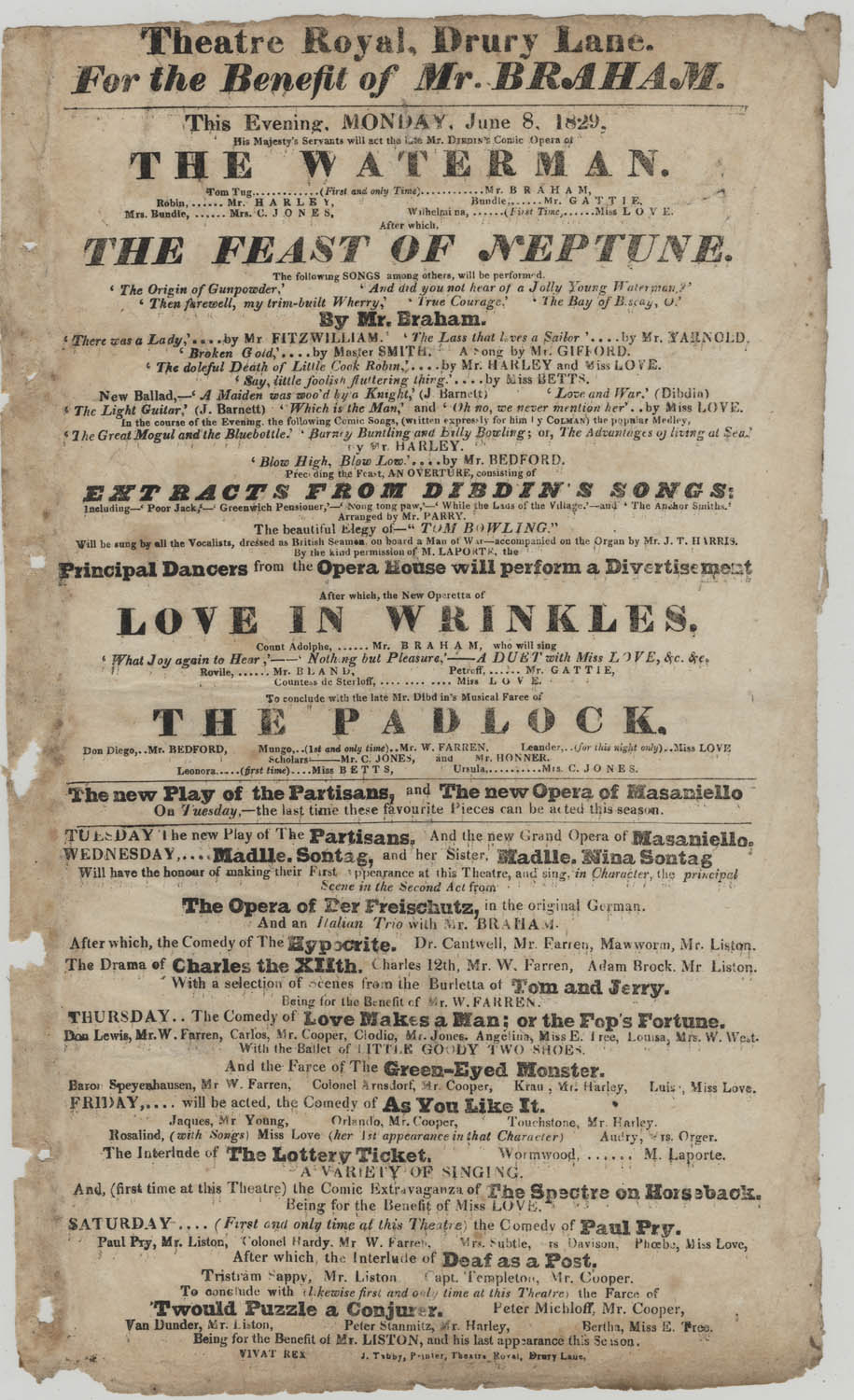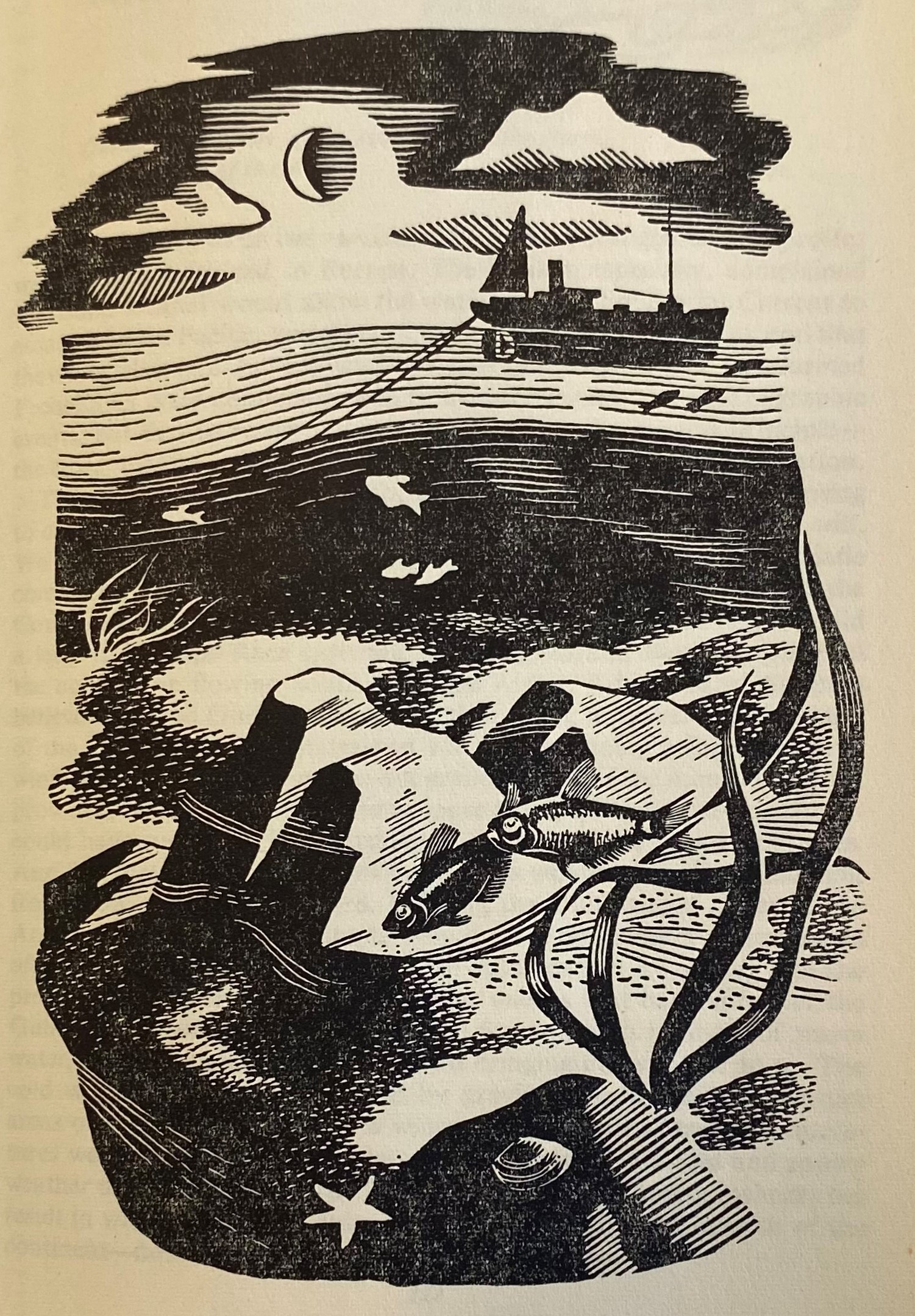Research and Curation Group Blog Series Number 2:
Elizabeth Grimshaw writes the second in our blog series from members of the Research and Curation Group. Elizabeth tells us about her selection of items for the Reflections on the Great British Fish & Chips exhibition, which included some playbills from our theatre collections, and a book by Rachel Carson.
I had the pleasure of digitizing Dickens playbills while completing my Master of Arts in Victorian literature at the University of Kent, and was so pleased to work with the Research & Curation group to revisit some of these incredible archival resources.
This fantastic 19th century playbill should call to mind two very different songs: the classic anthem Rule Britannia, and the Beatles hit For the Benefit of Mr. Kite.

Playbill – Theatre Royal, Drury Lane. For the Benefit of Mr Braham. “The Waterman”
Reference: POS/LDN DRU/0599532
In 1829, Britannia indisputably ruled the waves. Not only across an Empire through the might of the Royal Navy, but also here her cultural capital takes centre stage. The Waterman is an opera based on the annual race on the Thames that began in 1721, providing entertainment and sport for the ever growing London population. After this play was performed, vocalists in naval uniform, aboard a realistic Man of War, sang nautical tunes, blending fiction and reality at the height of England’s global powers. Invoking the mythical sea king Neptune for this feast aligns with the divine power of the Crown that would change drastically in the years to come. Britannia used to rule from shore to shore, with the sun never setting on the empire. Rule, Britannia! has been sung since 1740, but today should be modified to include and celebrate former colonies in its patriotic performances. The Beatles drew inspiration from a similarly busy playbill to write the lyrics for their hit 1967 song, taking these types of 19th-century entertainments into the 20th century.

Plate illustration Part 3: Man and the Sea About Him, in Rachel Carson “The Sea Around Us”
Classmark: GC 21
I wanted to end with Rachel Carson’s landmark 1951 environmental text, The Sea Around Us. Her work emphasizes not one country’s mastery over the ocean, but places humanity within an ecosystem we all must support and share. Environmental degradation endangers all living creatures, from the depths of the sea, to the ever changing landscape of tidal pools, to the communities who are reliant on these shoals for survival. This classic work is a timely reminder of how precious the planet is that we all share. The sea supports us, connects us, and sustains us, but can only do so if we care for it. We can take Carson’s text as a guide to connecting with others and protecting the vulnerable, especially as the climate crisis escalates.
Elizabeth Grimshaw, University of Buckingham
